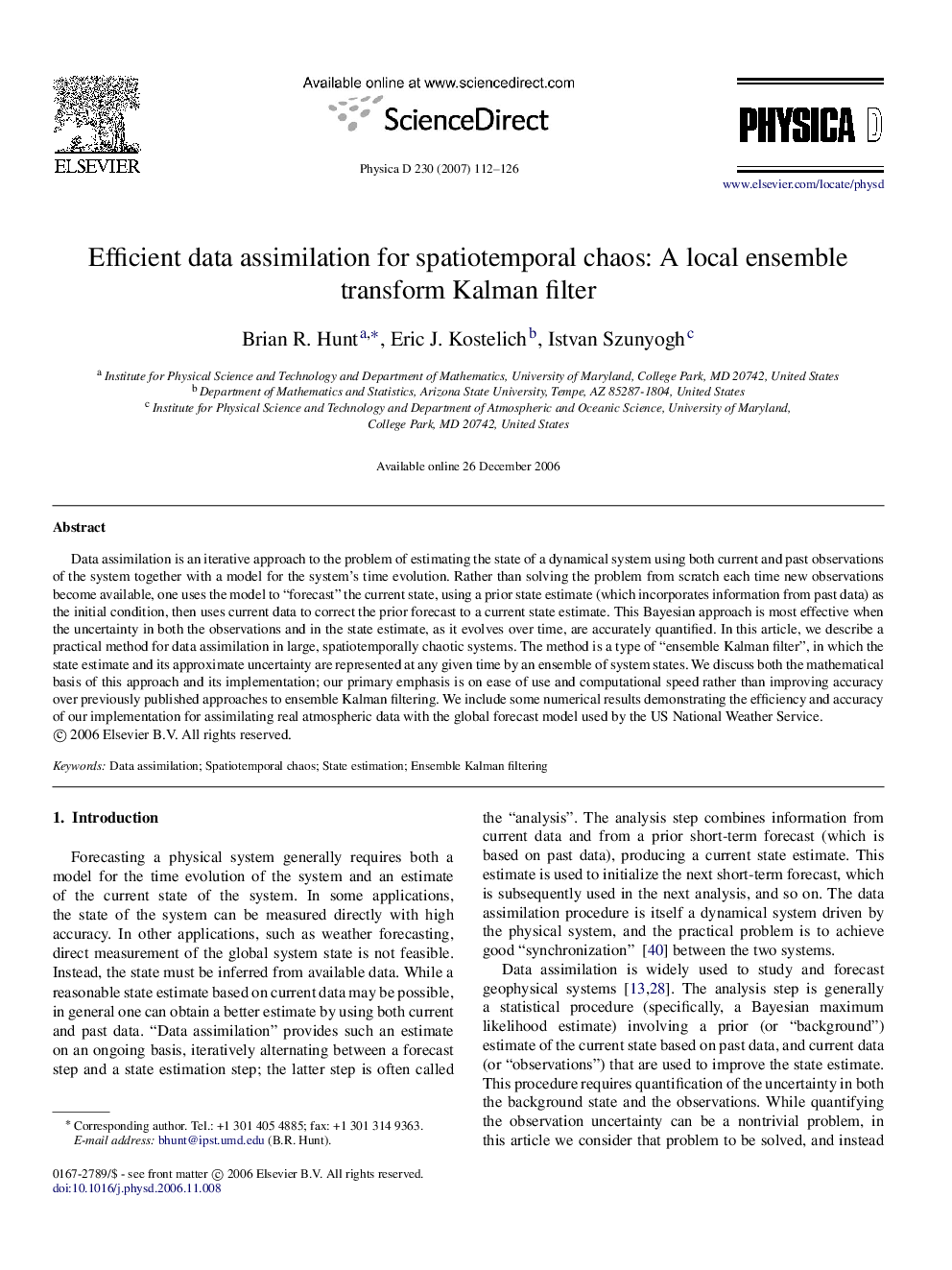| Article ID | Journal | Published Year | Pages | File Type |
|---|---|---|---|---|
| 1898043 | Physica D: Nonlinear Phenomena | 2007 | 15 Pages |
Abstract
Data assimilation is an iterative approach to the problem of estimating the state of a dynamical system using both current and past observations of the system together with a model for the system's time evolution. Rather than solving the problem from scratch each time new observations become available, one uses the model to “forecast” the current state, using a prior state estimate (which incorporates information from past data) as the initial condition, then uses current data to correct the prior forecast to a current state estimate. This Bayesian approach is most effective when the uncertainty in both the observations and in the state estimate, as it evolves over time, are accurately quantified. In this article, we describe a practical method for data assimilation in large, spatiotemporally chaotic systems. The method is a type of “ensemble Kalman filter”, in which the state estimate and its approximate uncertainty are represented at any given time by an ensemble of system states. We discuss both the mathematical basis of this approach and its implementation; our primary emphasis is on ease of use and computational speed rather than improving accuracy over previously published approaches to ensemble Kalman filtering. We include some numerical results demonstrating the efficiency and accuracy of our implementation for assimilating real atmospheric data with the global forecast model used by the US National Weather Service.
Related Topics
Physical Sciences and Engineering
Mathematics
Applied Mathematics
Authors
Brian R. Hunt, Eric J. Kostelich, Istvan Szunyogh,
